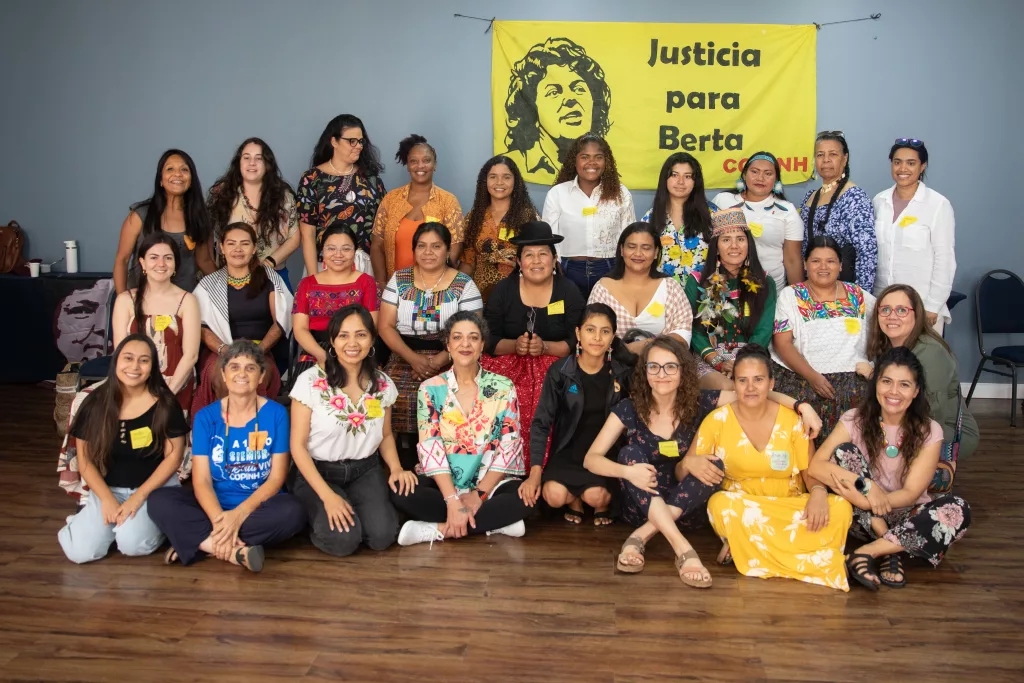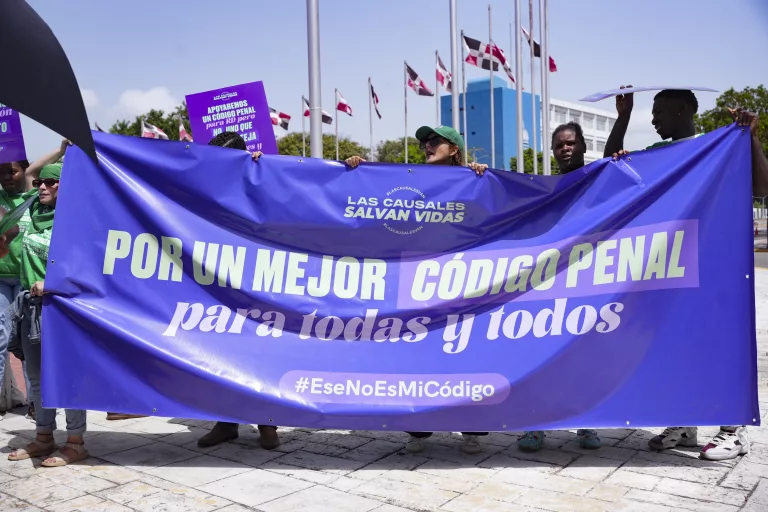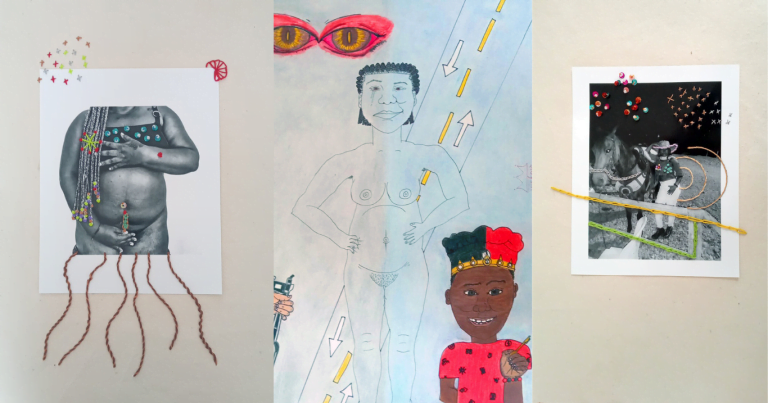More than a year ago we began working in alliance with two Honduran organizations: The Consejo Cívico de Organizaciones Populares e Indígenas de Honduras (COPINH) and the Movimiento Amplio por la Dignidad y la Justicia (MADJ).
After a collective process on behalf of the Lenca and Tolupan Indigenous Peoples, the three organizations sent an amicus brief* to the Inter-American Court of Human Rights (IACHR Court) in which we denounced the effects of the climate crisis on their communities, especially on indigenous girls’ and women’s lives.
All this work is part of an advisory opinion* requested by the governments of Chile and Colombia. They asked the Inter-American Court of Human Rights (IACHR) to clarify what responsibilities countries have to protect human rights when facing the climate crisis.
To honor the oral tradition of Indigenous Peoples, we accompanied the document with a video documentary (available in Spanish) in which indigenous people asked the court to listen to their communities. They also requested that the court allow a public hearing in an indigenous community and visits be made to several villages in the region to verify the impacts we denounced.
A few months ago, we traveled to Manaus, Brazil, a city in the middle of the Amazon jungle where the IACHR Court held a public hearing on the climate emergency and human rights in the Americas, achieving one of our objectives .
A historic meeting
Ángela Murillo, leader of the Tolupán People; Martha Miranda, leader of the Lenca People, and Estefanny Molina, our legal director for Latin America and the Caribbean, attended the public hearing. Arriving early to prepare our intervention, we engaged in a heartfelt exchange. We shared stories, listened deeply, and envisioned a better future for Indigenous Peoples, who have been excluded from the decision-making processes addressing the climate emergency.
Finally, the day came when we addressed the judges. Our voices were powerfully heard in Manaos’ iconic Amazonas Theater, built between 1884 and 1896.
“As a young Indigenous woman, who knows the history of my Lenca people, I feel a great responsibility towards future generations,” said Martha Miranda.
“We have been displaced from our territories. We don’t want to continue losing our people for defending the land,” said Ángela Murillo.
“We believe it is important to review how Indigenous Peoples, including girls and women, are being represented in these processes of participation,” said Estefanny Molina.

We also convened a feminist space we called “Guardians of the Earth”, uniting Indigenous People and Afro-descendant women leaders. They shared their stories of struggle in their territories and their experiences. One participant said she was thrilled because Indigenous women had few opportunities to meet.
“Guardians of the Earth” created a manifesto that was collectively constructed and delivered to the Executive Secretary of the IACHR Court. They asked the court to consider their role as women in the territories, and their knowledge and opinions in the struggle to confront the climate emergency.
We will work in solidarity with our allies for intersectional, racial and climate justice, because as Angela said during her speech, “Living without fear is also climate justice for us.”
* Amicus brief are documents in which individuals or organizations outside of a case offer their opinion to assist with a judgment or advisory opinion being considered by a court.
*Advisory opinions are a mechanism through which member states of the Organization of American States (OAS) can consult with the Inter-American Court on the compatibility of domestic norms with the Convention, and the interpretation of the Convention or other treaties concerning the protection of human rights in the American States.


